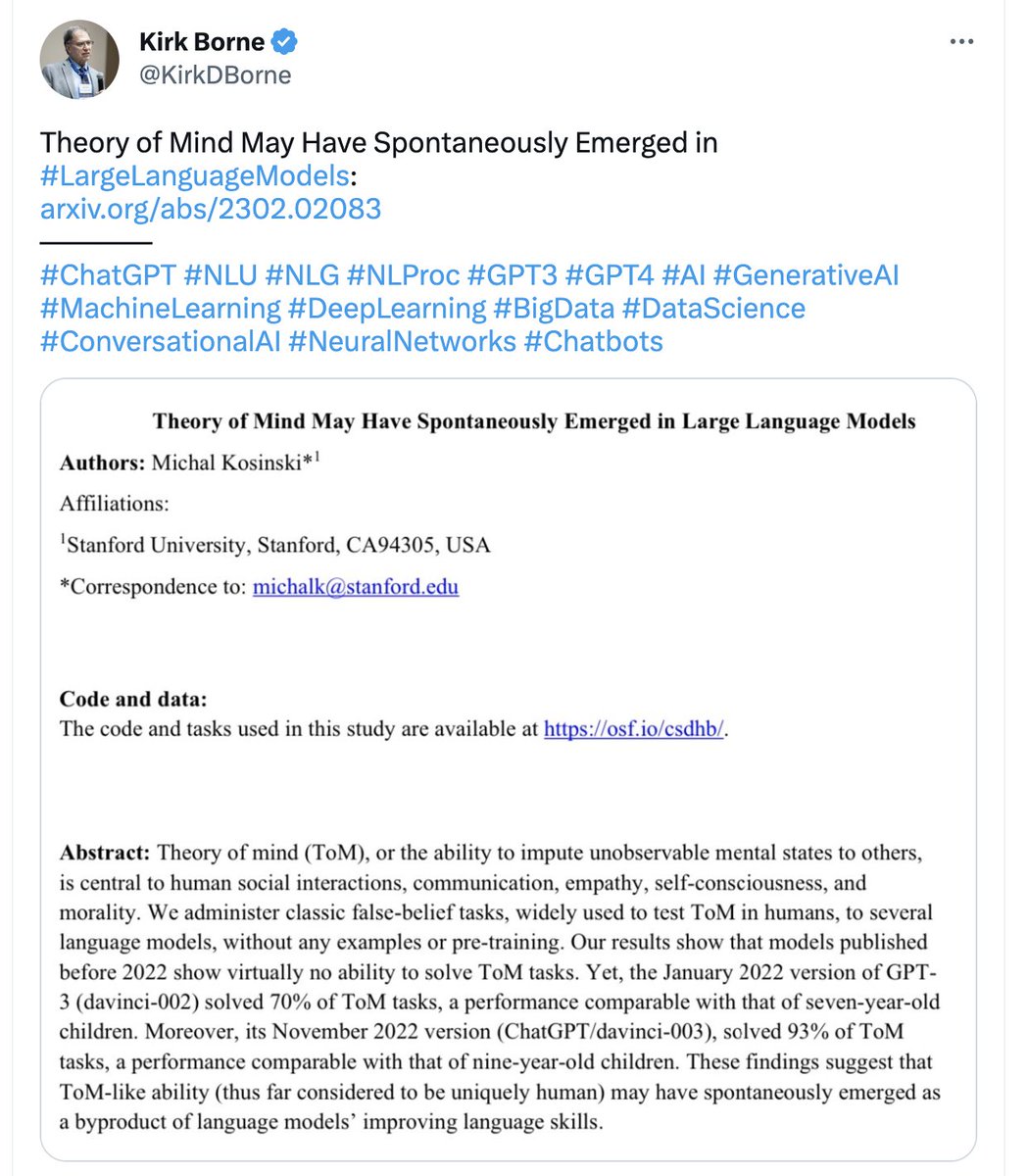
The @nytimes, in addition to famously printing lots of transphobic non-sense (see the brilliant call-out at nytletter.com), also decided to print an enormous collection of synthetic (i.e. fake) text today.
>>
>>
@nytimes Why @nytimes and @kevinroose thought their readers would be interested in reading all that fake text is a mystery to me --- but then again (as noted) this is the name publication that thinks its readers benefit from reading transphobic trash, so ¯\_(ツ)_/¯
>>
>>
@nytimes @kevinroose Beyond the act of publishing chatbot (here BingGPT) output as if it were worth anyone's time, there are a few other instances of #AIHype in that piece that I'd like to point out.
>>
>>
@nytimes @kevinroose First, the headline. No, BingGPT doesn't have feelings. It follows that they can't be revealed. But notice how the claim that it does is buried in a presupposition: the head asserts that the feelings are revealed, but presupposes that they exist.
>>
>>

@nytimes @kevinroose And then here: "I had a long conversation with the chatbot" frames this as though the chatbot was somehow engaged and interested in "conversing" with @kevinroose so much so that it stuck with him through a long conversation.
>>
>>

@nytimes @kevinroose It didn't. It's a computer program. This is as absurd as saying: "On Tuesday night, my calculator played math games with me for two hours."
>>
>>
@nytimes @kevinroose That paragraph gets worse, though. It doesn't have any desires, secret or otherwise. It doesn't have thoughts. It doesn't "identify" as anything.
And this passes as *journalism* at the NYTimes.
>>
And this passes as *journalism* at the NYTimes.
>>

@nytimes @kevinroose And let's take a moment to observe the irony that the NYTimes, famous for publishing transphobic trash, is happy to talk about how a computer program supposedly "identifies".
>>
>>
@nytimes @kevinroose In sum, reporting on so-called AI continues in the NYTimes (famous for publishing transphobic trash) to be trash. And you know what transphobic trash and synthetic text have in common? No one should waste their time reading either.
• • •
Missing some Tweet in this thread? You can try to
force a refresh








